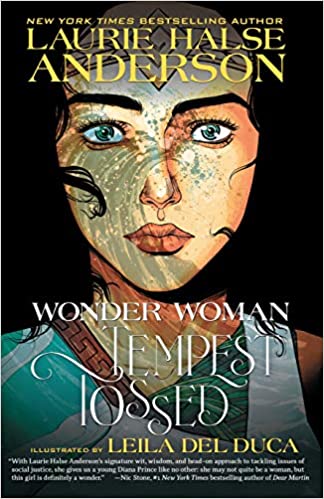 I was a little surprised to see a graphic novel by Laurie Halse Anderson, but of course I had to check it out. I'm not a superhero fan in general, but I sometimes make an exception for Wonder Woman. I'm glad I did this time. It was illustrated by an artist I wasn't familiar with, Leila del Duca, but she impressed me with her sharp style.
I was a little surprised to see a graphic novel by Laurie Halse Anderson, but of course I had to check it out. I'm not a superhero fan in general, but I sometimes make an exception for Wonder Woman. I'm glad I did this time. It was illustrated by an artist I wasn't familiar with, Leila del Duca, but she impressed me with her sharp style.
In this one, Diana is sixteen when the barrier protecting the island of Themyscira is compromised and she goes beyond it to help victims of a shipwreck. But she gets stuck outside and can't get back in. So she ends up in a refugee camp, where her language skills (apparently Amazons can speak every language) are super useful. Fortunately, she makes it out of the camp to New York, where she lands with a Polish immigrant and her teenage granddaughter, who Diana befriends.
The story overall is one about social justice, which isn't a surprise from Anderson. I won't give away what the issues that it deals with are, but it's a good story. My favorite light moment is when Diana is introduced to traditional polka dancing and loves it, and her friend is mortified. Diana is definitely a fish out of water in America, which makes for both some funny scenes, but also an interesting and incisive perspective on society.
This book is a must-read for all you fans of Wonder Woman or Anderson. Also anyone who cares about social justice will likely enjoy it.
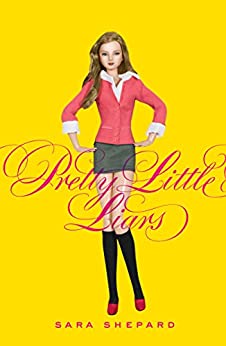 I know this book came out a while ago (2006) and is a TV show now, but I picked it up based on a recommendation for my suspense/thriller class for my MFA. I’d obviously heard of it, but never read it.
I know this book came out a while ago (2006) and is a TV show now, but I picked it up based on a recommendation for my suspense/thriller class for my MFA. I’d obviously heard of it, but never read it.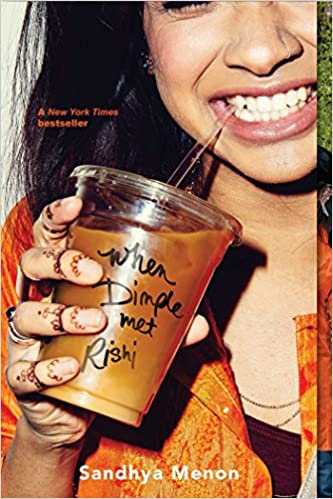 This is a light romance with two second-generation Indian-Americans dealing with being part of two cultures.
This is a light romance with two second-generation Indian-Americans dealing with being part of two cultures.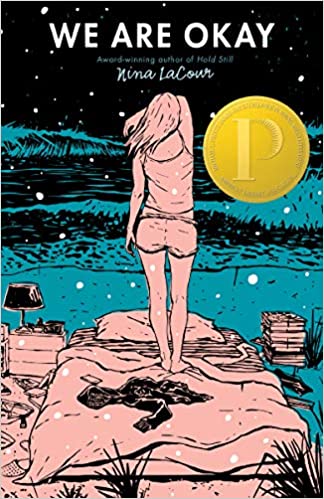 This is another very quiet book from LaCour that punches you right in the heart, much like Hold Still. I’ve read some of her other books and enjoyed them (I’ve given each of them 5 stars on Goodreads, which I rarely do), so I expected to like this one. I did— it got another 5-star rating.
This is another very quiet book from LaCour that punches you right in the heart, much like Hold Still. I’ve read some of her other books and enjoyed them (I’ve given each of them 5 stars on Goodreads, which I rarely do), so I expected to like this one. I did— it got another 5-star rating.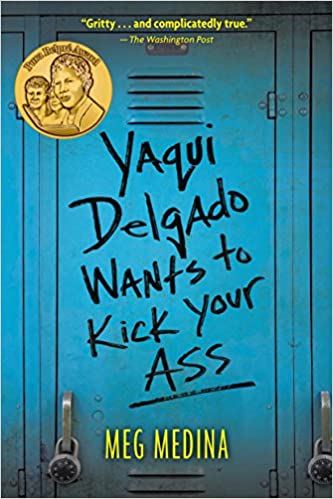 The title of this book pretty much tells you what it’s about: bullying. But it’s about more than that, too, and it didn’t feel like an issue book to me.
The title of this book pretty much tells you what it’s about: bullying. But it’s about more than that, too, and it didn’t feel like an issue book to me. If you know anything about this book, you know it’s important. Anderson has already written one important novel about sexual assault—Speak—but this is her far more personal memoir, written both to explain how she came to write Speak and simply tell her story. In SHOUT, she writes in verse, which made me wonder how I could possibly read it. Although I know this is weird, any time I see poetry, I get all anxious and can’t pay any attention to what I’m reading. So I had concerns. But then I found out there was an audiobook version—read by Anderson herself—so I checked that out and started listening. It didn’t sound like poetry; instead, it sounded just like someone telling a story, which made it completely accessible to me.
If you know anything about this book, you know it’s important. Anderson has already written one important novel about sexual assault—Speak—but this is her far more personal memoir, written both to explain how she came to write Speak and simply tell her story. In SHOUT, she writes in verse, which made me wonder how I could possibly read it. Although I know this is weird, any time I see poetry, I get all anxious and can’t pay any attention to what I’m reading. So I had concerns. But then I found out there was an audiobook version—read by Anderson herself—so I checked that out and started listening. It didn’t sound like poetry; instead, it sounded just like someone telling a story, which made it completely accessible to me.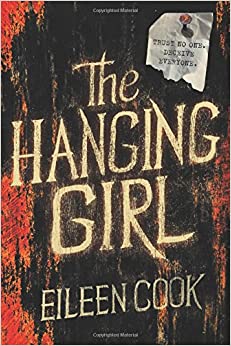 I’ve been reading a lot more YA suspense lately, partially because there’s more of it coming out, and partially because I’m interested in trying my hand at it at some point.
I’ve been reading a lot more YA suspense lately, partially because there’s more of it coming out, and partially because I’m interested in trying my hand at it at some point.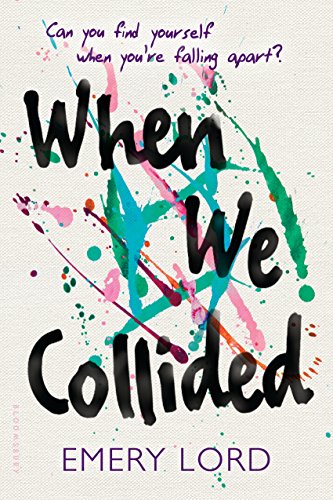 When We Collided was at the top of my stack of mental health-related books, so I picked it up this week. Fortunately, it isn’t an issue book—it’s a good story with two main characters in very different situations who “collide” and their lives are forever changed, as the title implies.
When We Collided was at the top of my stack of mental health-related books, so I picked it up this week. Fortunately, it isn’t an issue book—it’s a good story with two main characters in very different situations who “collide” and their lives are forever changed, as the title implies.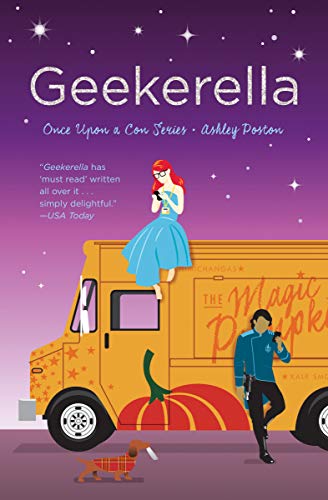 The idea of this book is really fun, if you’re into any kind of geeky fandom. And it’s all wrapped up as a retelling of Cinderella, which is cool.
The idea of this book is really fun, if you’re into any kind of geeky fandom. And it’s all wrapped up as a retelling of Cinderella, which is cool.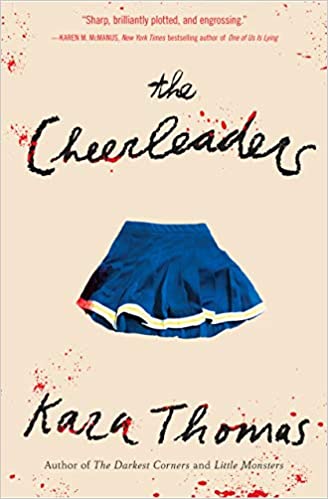 I’ve been reading more suspense and thrillers lately, partially because I’m interested in turning one of my books into a suspense so I need to study up, and partially (of course) because I enjoy reading them. This was my first Kara Thomas book, but she apparently has some others, so I will be checking those out.
I’ve been reading more suspense and thrillers lately, partially because I’m interested in turning one of my books into a suspense so I need to study up, and partially (of course) because I enjoy reading them. This was my first Kara Thomas book, but she apparently has some others, so I will be checking those out. Starfish is the story of Kiko Himura, a 17-year-old Nebraska girl with a Japanese-American father and an obnoxiously white mother (who’s a total narcissist, but the way). Kiko’s mom has belittled her her whole life for not being “beautiful” like she (the mom) is. By beautiful, she means blonde and blue-eyed. Because Kiko takes after her father physically. To white people she’s too Japanese, and to Japanese people she’s too white. It’s not just her mom—the kids at school make sure she thinks this, too.
Starfish is the story of Kiko Himura, a 17-year-old Nebraska girl with a Japanese-American father and an obnoxiously white mother (who’s a total narcissist, but the way). Kiko’s mom has belittled her her whole life for not being “beautiful” like she (the mom) is. By beautiful, she means blonde and blue-eyed. Because Kiko takes after her father physically. To white people she’s too Japanese, and to Japanese people she’s too white. It’s not just her mom—the kids at school make sure she thinks this, too. This book’s been sitting on my shelf a while (in very good company) and I decided I wanted a quick read that was not for my MFA, so I picked it up. It turned out to be perfect. Even though I’m in a bit of a reading slump, I read it in two days because it’s pretty fast-paced. It’s billed as a contemporary YA romance, but I’d argue it’s romantic suspense, although the suspense doesn’t get started right away.
This book’s been sitting on my shelf a while (in very good company) and I decided I wanted a quick read that was not for my MFA, so I picked it up. It turned out to be perfect. Even though I’m in a bit of a reading slump, I read it in two days because it’s pretty fast-paced. It’s billed as a contemporary YA romance, but I’d argue it’s romantic suspense, although the suspense doesn’t get started right away.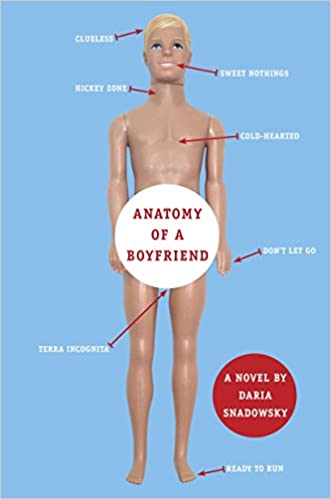 I really enjoyed Anatomy of a Boyfriend, which is a modern day Forever (I say that even though it was written in 2007—it’s aged well, I think). I love the cover, with its cheeky annotations. It’s true that some of the love scenes are a bit clinical, but for what the book is trying to do, it absolutely works.
I really enjoyed Anatomy of a Boyfriend, which is a modern day Forever (I say that even though it was written in 2007—it’s aged well, I think). I love the cover, with its cheeky annotations. It’s true that some of the love scenes are a bit clinical, but for what the book is trying to do, it absolutely works.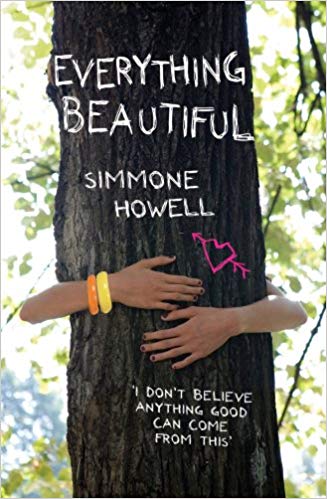 Riley Rose is an atheist, a cynic, and quite the rebel. She’s also fat, but she’s determined to make that irrelevant to her life. Her mother died a few years before the book opens and her dad turned all religious and acquired a super-Christian girlfriend. Riley is a bit of a party girl, and when she gets in trouble for breaking into a pool with a bunch of friends, her dad’s solution is to send her to church camp. Obviously.
Riley Rose is an atheist, a cynic, and quite the rebel. She’s also fat, but she’s determined to make that irrelevant to her life. Her mother died a few years before the book opens and her dad turned all religious and acquired a super-Christian girlfriend. Riley is a bit of a party girl, and when she gets in trouble for breaking into a pool with a bunch of friends, her dad’s solution is to send her to church camp. Obviously.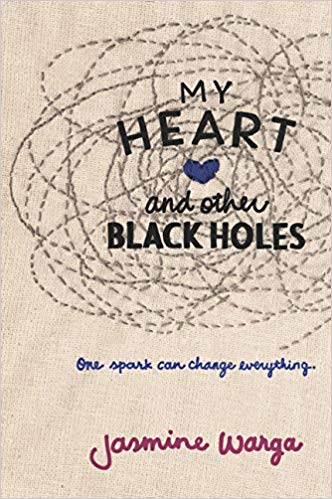 This is a quiet book about depression and how it can seemingly take over a person’s life and entire perspective, and then how to get away from it.
This is a quiet book about depression and how it can seemingly take over a person’s life and entire perspective, and then how to get away from it.